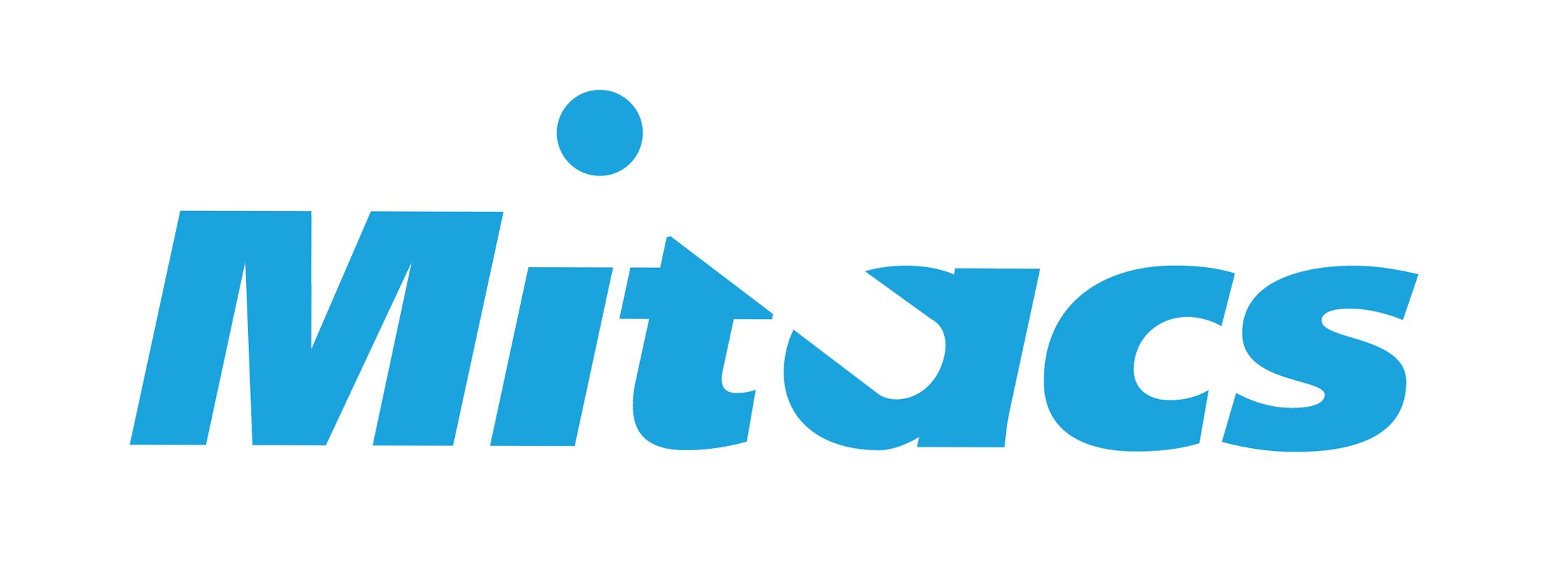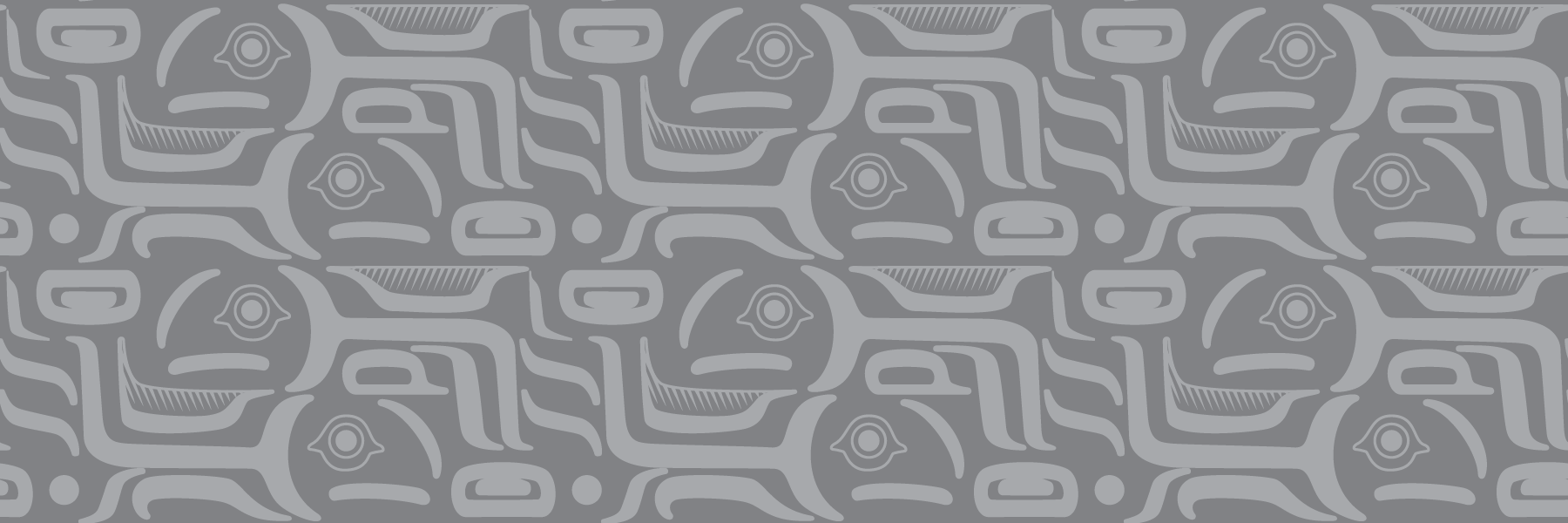
Co-Creating a Biocultural Framework for Fish and Fish Habitat Health Assessments
January 2021 - 2024
-

Fish
Salmon Habitat and Aquatic Ecosystem Health
-
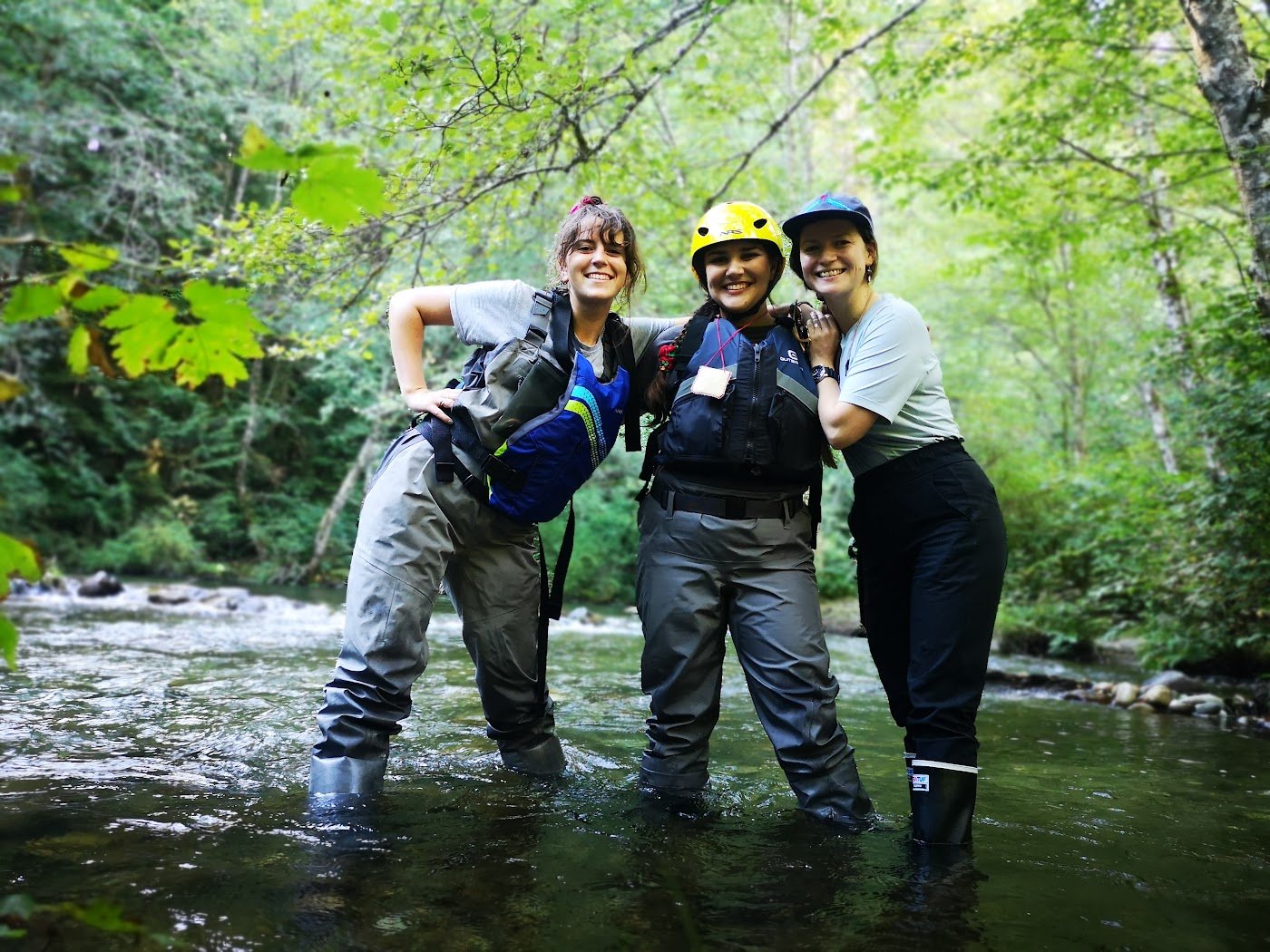
People
First Nations Fisheries Legacy Fund (a collective of six First Nations in the Lower Mainland of BC: Katzie, Kwantlen, Kwiktwelem, Musqueam, Tsawwassen, and Tsleil-Waututh First Nations)
Kate Mussett & Kasey Stirling, advised by Dr. Andrea Reid
-

Place
Lower Stal̕əw (Fraser River) and surrounding watersheds
Project Description
The work we collaboratively engage in addresses the weaving of Western science and Indigenous Knowledge systems for more informed, equitable fisheries decision making in the Lower Fraser region. Our team is partnering with the First Nations Fisheries Legacy Fund (FNFLF), a collective of six First Nations in the Lower Mainland of BC: Tsawwassen, Tsleil-Waututh, Musqueam, Katzie, Kwiktwelem, and Kwantlen First Nations. This partnership aims to co-create a more wholistic framework for monitoring the health of aquatic ecosystems to better inform protection and conservation action of fish habitat, as well as addressing the cumulative effects of climate change and industrialization on salmon habitat in the Lower Fraser River region. Our project was largely inspired by a collaborative bio-cultural indicator framework co-developed by the Māori Nation and New Zealand Government in Aotearoa, or New Zealand. The FNFLF and partner First Nations identified a need for a similarly co-created framework within the Lower Fraser River region, and reached out to our team to collaborate.
Our work focuses on equitable collaboration with Indigenous Peoples in order to address the negative history of knowledge extraction by academic institutions and researchers in researching Indigenous Peoples and Indigenous Knowledges. We are grateful for the success we have experienced in the relationships we have fostered through our dedication to reciprocity and community engagement. While our goals are to share the resulting framework with other First Nations across British Columbia as well as with provincial decision making bodies, we aim first and foremost to inspire others to consider how their work can address UNDRIP and the Calls to Action of the TRC, as well as to pave the way for future success in collaborative work that centres Indigenous community goals, knowledge systems, sovereignty, and well being of fish, people, and place.
To view the completed Biocultural Indicator Manual and Implementing Biocultural Frameworks for Water and Fish Habitat Assessment Recommendations Paper please click here.
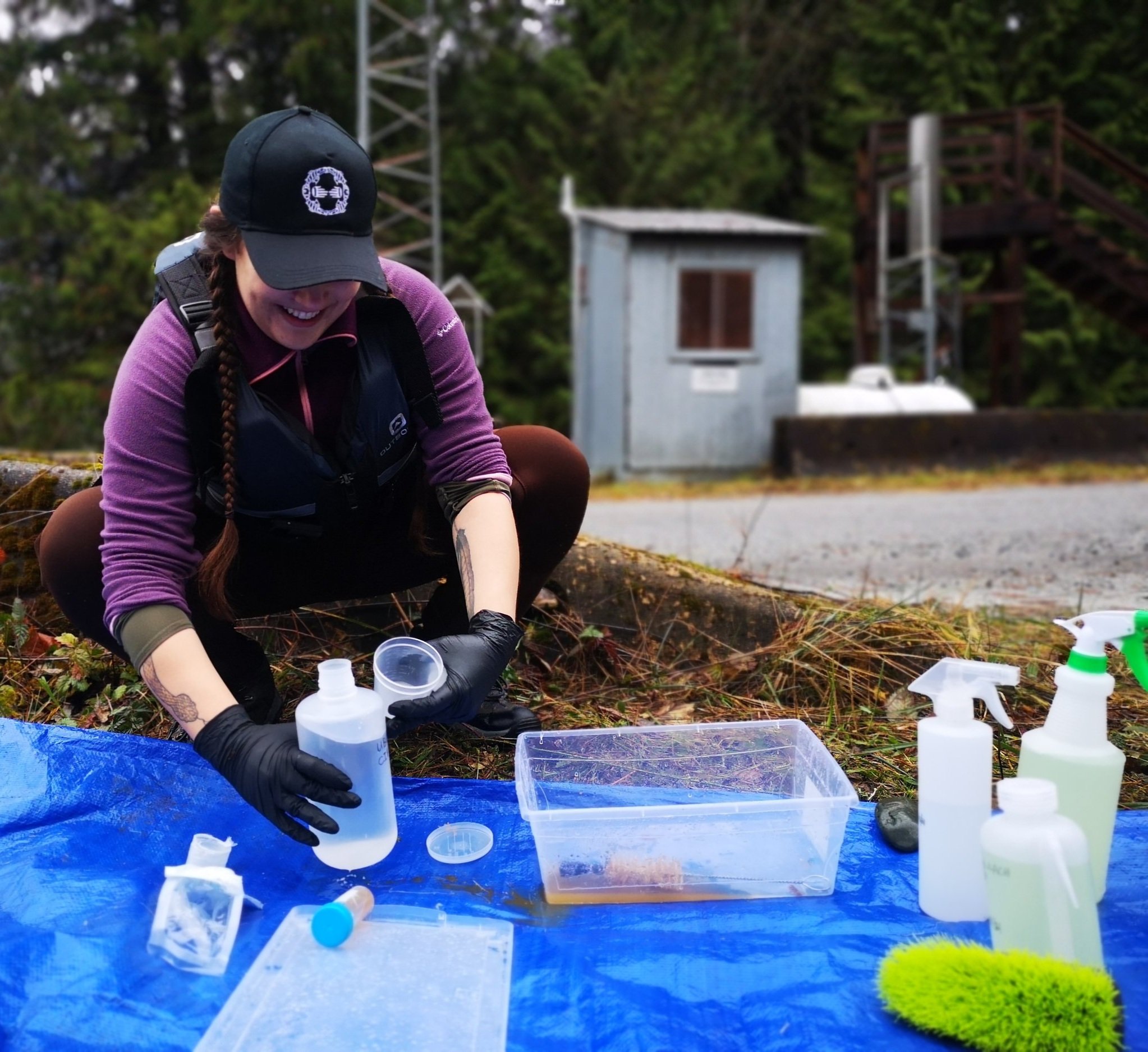
“For this project, I focus both on the ethical practices in working with Indigenous Peoples in research and an environmental DNA (eDNA) survey of aquatic algae communities (diatom assemblages) as one metric of the health of an aquatic environment. Through this work, we hope to give back some agency to our partner Nations in stewarding their territories under current Western science-based management contexts.
The research process is inherently collaborative in that the partner Nations' community members are invited to participate in the study design during community workshops. These workshops aim to foster the participation of Indigenous communities in the research process at every step, including future publications, to develop good, long-term working relationships between Indigenous people and academic researchers. By demonstrating our experiences of this collaborative research process, we hope to co-create a framework which can be applied by other Indigenous Peoples throughout Turtle Island and Internationally.”
- Kasey Stirling
Thesis Title:
From Ethics to Genetics in Aquatic Ecology: Process is Key
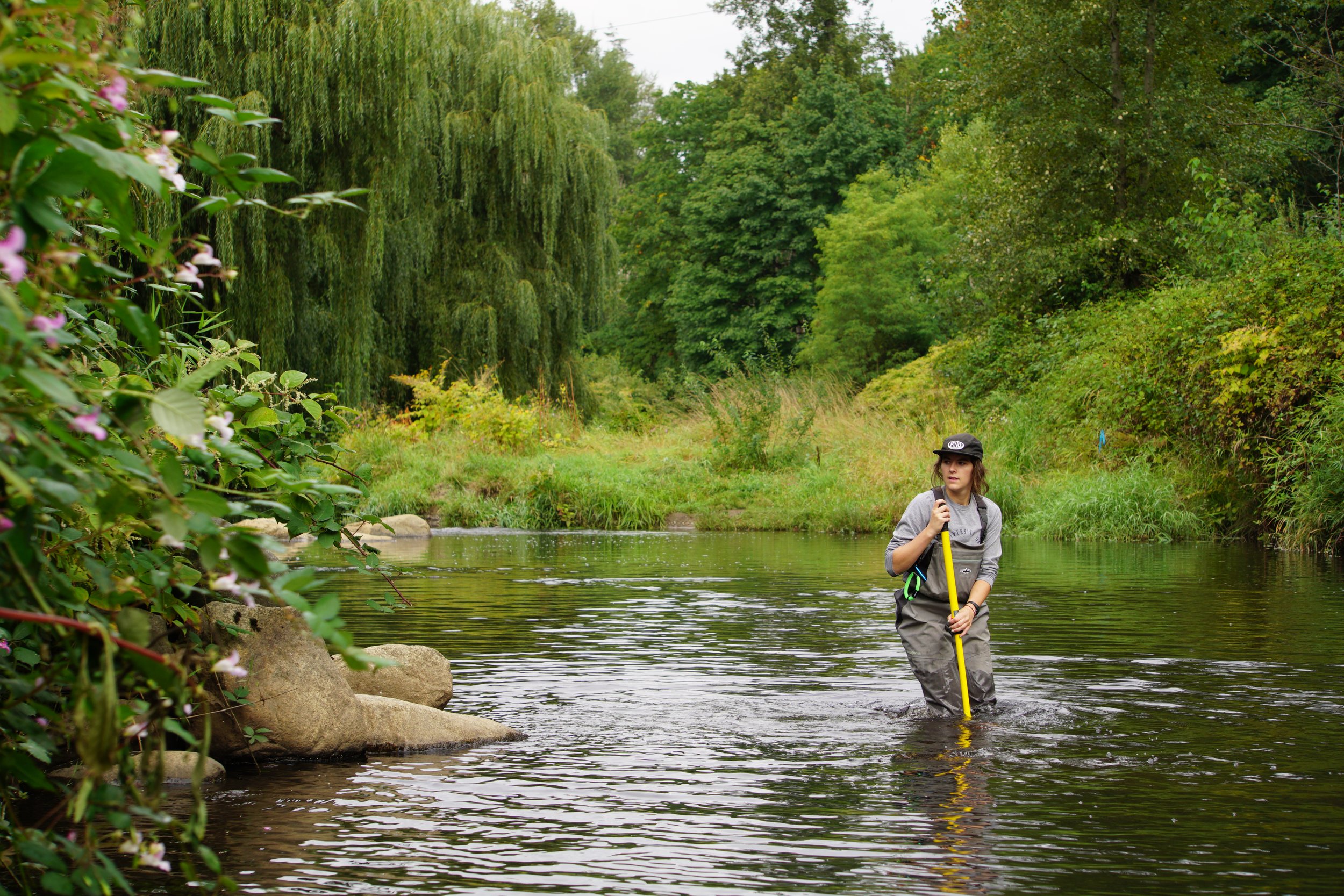
“Given my early career and educational background in aquatic ecology and environmental monitoring, my goals for this work were to continue building on my own skill set while also using my expertise to answer questions brought forward by the project's partner First Nations. My role in this project focuses on assessments of aquatic and riparian areas through the use of STREAM (Sequencing the Rivers for Environmental Assessment and Monitoring), in order to address concerns related to fish habitat and water health. Additionally, this work attempts to reach beyond the confines of standardised models for physical, chemical, and biological indicator based aquatic assessments to include aspects of health rooted in bio-cultural indicators, such as access and relationality, informed by Indigenous Knowledge from our project partners.”
- Kate Mussett
Thesis Title: Co-Creating a Biocultural Indicator Framework for Fish and Fish Habitat Health with Lower Stal̕əw (Fraser River) Region First Nations
Project Funding

Photo Credits & Gratitude: We hold our hands up in thanks to Andrea Reid, John-Francis Lane, and Nicole Jung.


